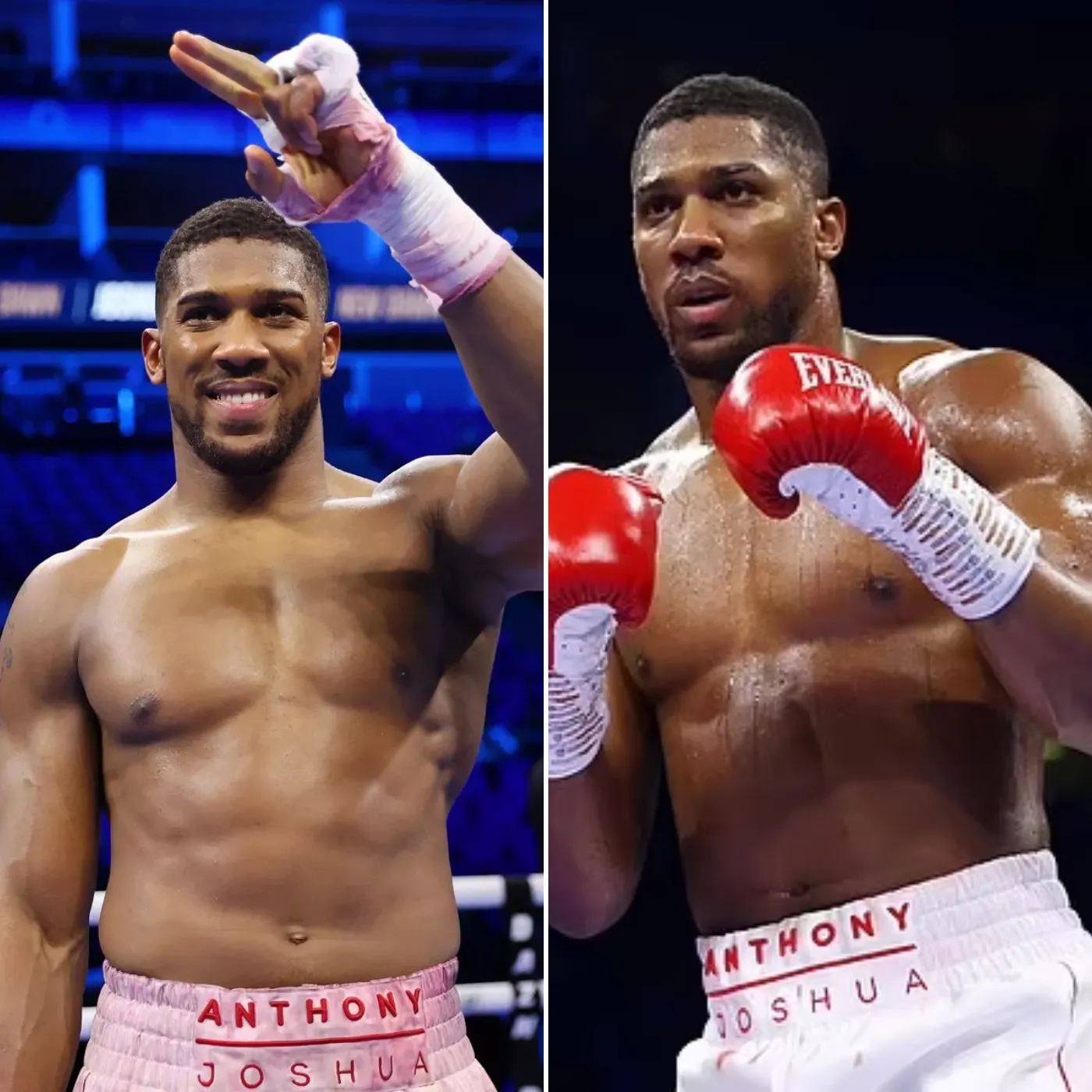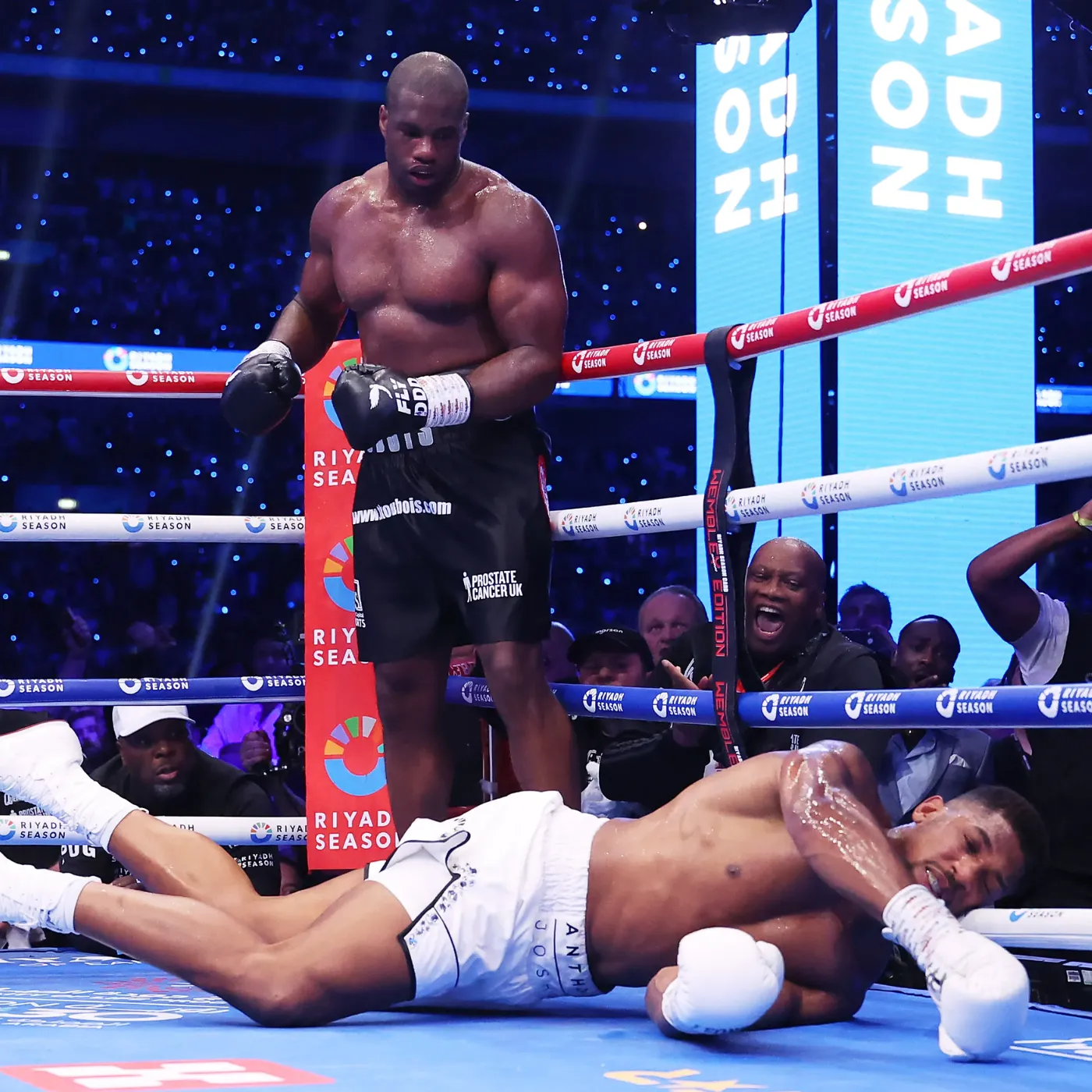Anthony Joshua Loses Again, But His Wallet Still Wins—Is Boxing Fair Anymore?

Anthony Joshua is no stranger to the spotlight, whether it’s inside the ring or out. Despite suffering losses in his recent bouts, the former heavyweight champion continues to rake in astronomical paychecks. Fans and critics alike are left questioning: Is boxing fair anymore? How does a fighter with multiple defeats still command earnings that dwarf those of his victorious opponents? Let’s unpack this controversial topic.

The Business of Boxing: Why Joshua Keeps Winning Financially
Boxing has always been more than just a sport—it’s a business, and in business, marketability often trumps performance. Anthony Joshua’s appeal extends far beyond his fighting record. His charisma, sculpted physique, and global fanbase make him a marketer’s dream. Major sponsors, such as Under Armour and Beats by Dre, have stuck by him, ensuring his earning potential remains intact even after losses.
The recent example? Despite losing to Oleksandr Usyk not once but twice, Anthony Joshua walked away with paydays that his opponents could only dream of. This disparity is largely due to his immense draw at the box office. Joshua can fill arenas in London, Saudi Arabia, or anywhere else in the world, and his fights consistently bring in millions of pay-per-view buys.
Still, many wonder: Is this fair to the fighters who defeat him? The question highlights a deeper issue in boxing—star power often outweighs skill when it comes to determining paychecks.
Joshua’s Marketability: The Real Heavyweight Champion?
What separates Joshua from other boxers who’ve fallen from grace? The answer lies in his brand. Anthony Joshua has cultivated an image that resonates with fans across different demographics. Whether it’s his humble beginnings in Watford or his gracious sportsmanship, Joshua remains a fan favorite even in defeat.
But let’s address the elephant in the room: Should a fighter’s ability to sell tickets and endorsements outweigh their performance in the ring? Critics argue that this trend undermines the sport’s integrity. Fighters like Oleksandr Usyk, who dethroned Joshua with surgical precision, receive far less recognition and money despite proving their dominance.
It’s worth noting that Joshua’s appeal isn’t just limited to the UK. His international fanbase ensures that promoters are willing to pay top dollar to have his name on the marquee. From a business standpoint, Anthony Joshua is still the biggest heavyweight draw in the sport. This phenomenon isn’t exclusive to boxing; other combat sports, like MMA, have seen stars like Conor McGregor continue to earn massive paydays regardless of losses. But does this justify the glaring pay gap?
Is Boxing Fair Anymore?
The disparity in earnings between Anthony Joshua and his opponents raises a fundamental question: Has boxing strayed too far from its roots? Purists argue that the sport should prioritize skill and achievement over star power and commercial appeal. On the flip side, promoters and networks counter that without big names like Joshua, the sport risks losing its mainstream appeal.
Consider this: Joshua’s fights often involve extravagant production, sold-out arenas, and unprecedented global attention. In contrast, even a technically superior fighter like Usyk or Deontay Wilder doesn’t command the same level of spectacle. For promoters, the math is simple—Joshua guarantees revenue, win or lose.
This dynamic isn’t new to boxing. History has seen similar trends with legends like Mike Tyson and Floyd Mayweather. However, the backlash against Joshua’s continued financial dominance reflects a growing frustration among fans. Many believe that paychecks should reflect merit, not marketability.

What’s Next for Joshua?
Despite his losses, Anthony Joshua remains a key figure in heavyweight boxing. Talks of a potential fight against Deontay Wilder or Tyson Fury continue to circulate, and these matchups promise to draw massive attention, regardless of Joshua’s recent performances. With the heavyweight division as stacked as it’s ever been, Joshua’s path to redemption could bring him back into championship contention.
But will the conversation around his earnings ever die down? It seems unlikely. As long as boxing remains a sport where marketability is king, figures like Joshua will continue to dominate financially, even when they don’t dominate in the ring.
The Double-Edged Sword of Star Power
Anthony Joshua’s financial success despite recent losses is a testament to his star power and the business side of boxing. While it’s hard to deny his contributions to the sport’s popularity, his ability to earn more than his opponents—victorious or not—raises valid concerns about fairness in boxing.
For now, Anthony Joshua remains a polarizing figure, loved by fans and questioned by critics. Whether he’ll silence his doubters with a return to form in the ring or continue to rely on his marketability remains to be seen. One thing is certain: Joshua’s name will remain in the spotlight, and his wallet will remain as heavy as ever.





